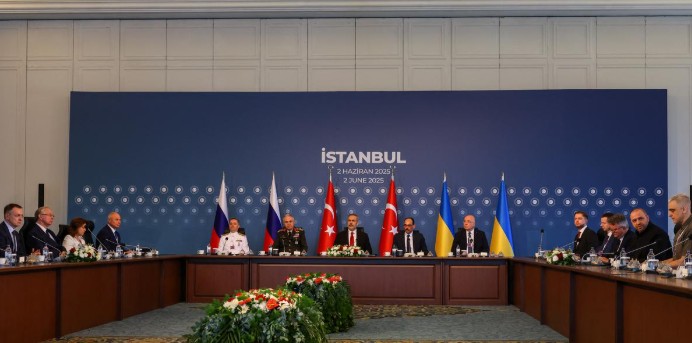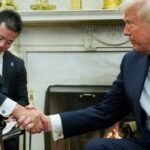Turkey hosts third round of negotiations as both sides seek limited humanitarian agreements, but ceasefire remains elusive
Delegations from Russia and Ukraine arrived in Istanbul on Sunday for a third round of peace talks, reigniting diplomatic efforts to end more than three years of conflict. The negotiations are being facilitated by Turkey, which has positioned itself as a key regional mediator.
According to officials close to the process, this round of talks will prioritize humanitarian issues such as prisoner exchanges, civilian evacuations, and safe corridors, building on limited agreements reached during earlier discussions in May and June.
Despite the progress in specific areas, major sticking points remain, particularly over the framework of a comprehensive ceasefire and the status of territories currently under occupation. Negotiators from both sides have submitted revised proposals, but diplomats say the gulf between them is still wide.
“We are committed to dialogue, but we won’t compromise Ukraine’s sovereignty,” said Ukrainian President Volodymyr Zelenskyy, speaking in Kyiv ahead of the talks. Zelenskyy also confirmed that Rustem Umerov, recently appointed as Secretary of Ukraine’s National Security and Defense Council, will lead the Ukrainian delegation moving forward.
The Russian delegation is being led by Viktor Medinsky, a senior Kremlin adviser and former culture minister. Russian officials have reiterated Moscow’s demand for security guarantees and recognition of its control over certain territories, which Kyiv has consistently rejected.
Turkey’s Role and International Interest
Turkish President Recep Tayyip Erdoğan has remained engaged behind the scenes, urging both sides to make progress. Turkey’s strategic position as a NATO member with diplomatic ties to both Moscow and Kyiv has allowed it to host previous rounds of talks, although outcomes so far have been modest.
Observers from the United Nations, European Union, and Organization for Security and Co-operation in Europe (OSCE) are not directly participating in the talks but are monitoring developments closely.
U.N. Secretary-General António Guterres released a statement urging both nations to “use this opportunity to prioritize civilian lives and move closer to a permanent resolution.”
Public Sentiment and Global Reactions
Public opinion remains divided in both countries. In Ukraine, war fatigue and growing economic hardship have intensified calls for peace, yet there is also deep skepticism about Russia’s intentions. In Russia, state-controlled media continues to present the conflict as a defensive operation, but there are signs of quiet public discontent over prolonged military engagement.
Meanwhile, global powers including the United States, China, and the European Union continue to press for a resolution, with U.S. officials expressing cautious optimism that renewed dialogue could lay the groundwork for future diplomatic breakthroughs.
What Comes Next
No final agreement is expected from this week’s talks, but negotiators say a joint statement may be issued depending on progress on humanitarian corridors and potential confidence-building measures, such as expanding prisoner exchanges.
President Zelenskyy has called for direct talks with Russian President Vladimir Putin, a proposal that remains unacknowledged by the Kremlin.
As the Istanbul discussions continue behind closed doors, hopes for a broader ceasefire remain fragile but not extinguished.



